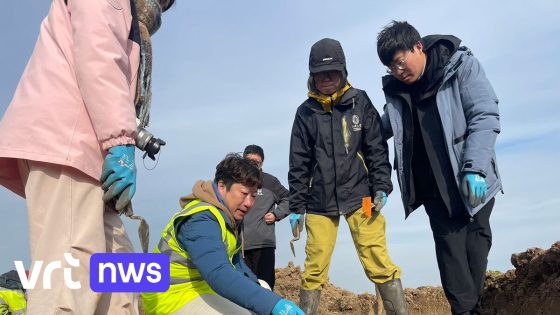Archaeologists have uncovered traces of a Chinese labor camp from World War I in Reningelst, Belgium. This remarkable discovery, announced on February 19, 2025, marks a unique scientific research initiative rather than being tied to construction or other projects. What secrets might this site reveal about history?
- Excavations not linked to construction projects
- Focused on scientific research purposes
- Unprecedented activity in Poperinge's history
- International collaboration involving multiple organizations
- Partners include In Flanders Fields Museum and Shanghai University
Uncovering History: The Significance of the Chinese Labor Camp Discovery
This excavation is not just another project; it’s a groundbreaking venture into our past. Why is this discovery so important? It sheds light on the often-overlooked contributions of Chinese workers during the war.
The International Collaboration Behind the Excavation Efforts
This historic dig involves an impressive partnership between the In Flanders Fields Museum, Onroerend Erfgoed agency, and Shanghai University. Together, they aim to uncover valuable insights into how these labor camps operated and their impact on local communities.
The Role of Chinese Workers During WWI: A Historical Perspective
The presence of Chinese laborers in Europe during World War I is often overshadowed by more familiar narratives. These workers were crucial for logistical support in various capacities.
- Provided essential labor for military logistics
- Facilitated transportation and supply routes
- Contributed to local economies through their work
- Brought cultural exchanges that influenced post-war society
The Future Implications of This Research Project
This excavation will not only enrich our historical knowledge but also foster discussions about multicultural contributions to major events like WWI. How can we ensure that these stories are preserved for future generations?




























![Binance Coin [BNB] Price Surge Ahead: Crucial Levels to Monitor Amid Market Shifts](https://news.faharas.net/wp-content/uploads/2025/02/Binance-Coin-BNB-Price-Surge-Ahead-Crucial-Levels-to-Monitor.webp.webp)


